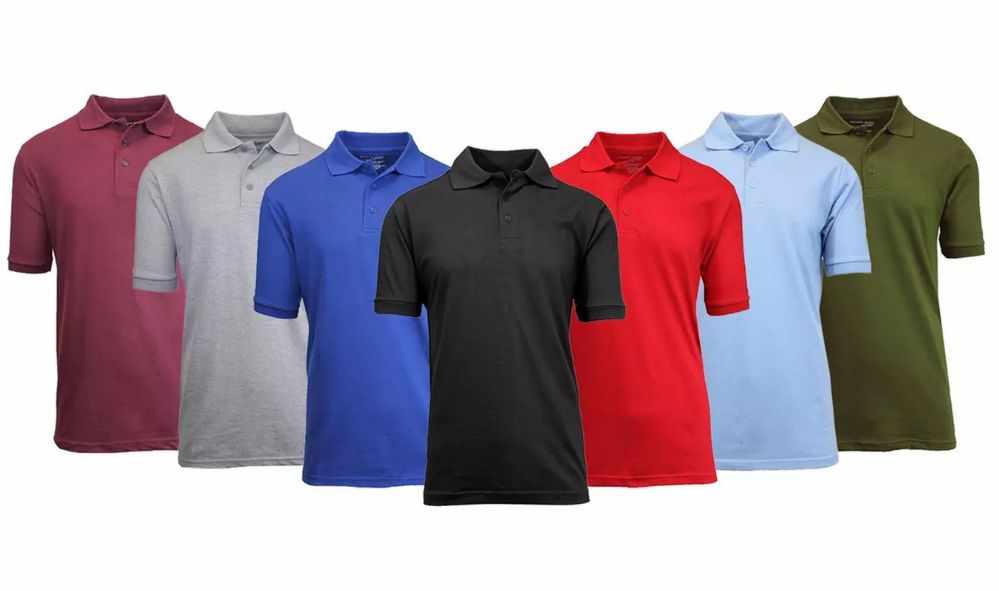
Wholesale T‑shirts and wholesale headwear form two pillars in the apparel and promotional product industry. Retailers, event organizers, and brands rely on bulk supply to meet seasonal trends, brand campaigns, and customer demand. T‑shirts prove versatile as casual wear, promotional giveaways, and uniform pieces, while headwear — including caps, beanies, visors, and bucket hats — complements outfits and extends brand visibility. Together, these product types allow companies to deliver cohesive collections across apparel and accessories. As consumers expect both style and affordability, wholesalers must maintain low cost per unit while ensuring quality, timely delivery, and trend relevance.
Quality Standards in Bulk T‑Shirt Supply
When sourcing wholesale T‑shirts, fabric and construction matter greatly. Wholesale T‑shirts often use cotton, cotton blends, or performance materials. A well‑woven knit, consistent dyeing, and sturdy stitching reduce defects and returns. Weight specifications (measured in gsm or ounces) indicate fabric thickness; many customers prefer midweight shirts (around 5–6 oz) for good drape and durability. Additionally, colorfastness and shrinkage control are critical. Inconsistent dyes or large shrinkage rates damage brand reputation. Wholesalers typically inspect blanks before shipping, rejecting batches with flaws. For screen printing or embroidery, blank garments must have smooth surfaces and stable seams. A wholesale t shirt supplier should offer dozens of sizes and cuts (crew neck, v‑neck, long sleeve, tank tops) to appeal to varied markets.
Varieties and Styles of Wholesale Headwear
headwear wholesale spans many styles and materials. Among the most common are baseball caps (structured, unstructured, snapback, fitted), mesh caps, beanies, bucket hats, and visors. Materials range from cotton twill, polyester, acrylic knits, to technical fabrics. Some caps include structured crowns and curved bills; others are soft and flexible. Headwear often requires internal sweatbands, adjustable closures (strapback, snapback, Velcro), and lining for comfort. Because the headwear market is fashion‑sensitive, wholesalers must rotate styles each season and offer trending items such as dad hats or dad caps. Many customers order blank headwear to customize with logos or designs. Wholesalers also supply premade decorated hats for those who want ready‑to‑sell pieces.
Supply Chain and Logistics Challenges
Managing inventory, shipping costs, and lead times is vital in wholesale apparel. Suppliers often source blanks domestically or overseas; importing can cut costs but introduce customs delays, tariffs, and minimum order quantities. Warehousing and consolidation of shipments help reduce per‑unit transport expenses. Many wholesalers offer drop‑shipping services so retailers can sell products without holding stock. Managing returns, damages, and rework demands clear policies. Seasonal demand spikes (e.g. back‑to‑school, sports seasons) require safety stock planning. Quality control inspections at manufacturing sites catch errors early, preventing costly returns midstream.
Pricing Strategies and Margins
Wholesale T‑shirts and headwear must be priced to balance competitiveness and profitability. Volume breaks give lower unit costs at higher order quantities. For example, ordering 100 units may yield one price, while 1,000 units may yield a 20–30% discount. Wholesalers often establish tiers: small orders, mid orders, and bulk orders. Transparent pricing and consistent margins foster trust. Retailers typically aim for keystone markup (100%) or 2× cost, though brands may adjust margins depending on market positioning. Offering bundled apparel + headwear combos encourages higher cart values and smoother inventory rotation.
Customization and Decoration Options
A major draw in wholesale apparel is the ability to customize products. For T‑shirts, decoration methods include screen printing, direct‑to‑garment (DTG) printing, heat transfer vinyl, embroidery, sublimation, and discharge inks. Each method has pros and cons: screen printing is cost‑effective for large runs with few colors; DTG suits detailed full‑color designs in smaller batches. Embroidery works well for logos near collars or sleeves. For headwear, customization involves embroidery, patch application, sublimated panels, or woven labels. A capable wholesaler will integrate decoration services into the supply chain so buyers receive finished goods.
Branding and Market Positioning
Brands and retailers using wholesale T‑shirts and headwear must consider brand identity. Basic solid tees and caps supply a canvas, while fashion cuts and trendy colors help stand out. Collaborations with artists or limited‑edition collections raise perceived value. Some wholesalers provide private‑label services, allowing retailers to use custom tags and packaging. Offering unique fabrics (e.g. tri‑blend, recycled materials) or eco-friendly dyes can appeal to environmentally conscious consumers. Consumers may pay premium for sustainably produced apparel.
Seasonal Trends and Color Forecasting
Fashion trends and color palettes shift each season. Wholesale suppliers often consult color forecasting services to align inventory with upcoming consumer tastes. Pastels, earthy tones, and seasonal hues may dominate spring, while deep tones and neutral palettes often lead in fall. Suppliers may release seasonal capsule collections with coordinating T‑shirts and headwear. Staying ahead of trends ensures retailers can offer fresh options to end customers. Unused inventory is costly, so trend alignment and agile restocking reduce waste.
Serving Diverse Clientele: From Small Shops to Enterprises
Wholesale suppliers serve a spectrum of clientele. Small boutiques and startups may place modest orders and require low minimums, while large retailers and corporate clients need thousands of units across many SKUs. Wholesalers design tiered services: basic blank fulfillment for small clients, full customization and packaging services for large accounts, and drop‑shipping for online sellers. Customer portals with order tracking, inventory snapshots, and reorder suggestions help streamline operations for all customers.
Quality Assurance and Return Policies
To maintain reputation and reduce losses, wholesalers offer warranties or return policies. Inspections occur before packing. Many offer replacement for defective items within defined time windows. Documentation of quality checks adds credibility. Transparent return policies reassure buyers hesitant to purchase large lots.
Marketing and Sales Channel Strategies
Wholesalers promoting T‑shirts and headwear use content marketing, SEO, wholesale marketplaces, and trade shows. Publishing blog posts on customizing apparel, trend reports, and case studies builds SEO authority. Keywords like “wholesale T‑shirts,” “bulk headwear,” and “custom headwear supplier” help attract search traffic. Listings on B2B apparel portals expose products to buyers globally. Attending industry trade shows introduces samples and builds relationships. Email campaigns announcing new color drops or promotional deals encourage repeat buyers.
Sustainability and Eco Options
Increasingly, consumers and retailers seek sustainable options. Wholesalers now offer organic cotton T‑shirts, recycled polyester caps, low-impact dyes, and water‑based ink printing. Certifications like GOTS (Global Organic Textile Standard) or OEKO‑TEX validate eco credentials. Promoting sustainability differentiates your offerings and meets growing market demand.
Technology and Automation in Wholesaling
Modern wholesale operations adopt technology: order management systems, automated inventory replenishment, AI forecasting, and integrated logistics platforms. Clients enjoy portals to configure custom orders, check mockups, and submit purchase orders. Real-time inventory visibility helps avoid stockouts. Automation accelerates order processing, packaging, and shipping.
Global Supply and Sourcing Considerations
Wholesale suppliers may partner with manufacturers across Asia, Latin America, or domestic facilities. Each location has tradeoffs: cost, lead time, regulatory compliance, labor standards, and shipping logistics. Diversifying supplier base reduces risk of disruption (e.g. natural disasters, trade policy changes). Sourcing nearer to target markets (near‑shore) may reduce shipping time and tariffs.
Scaling Business with Product Bundles
Offering bundled sets—like a T‑shirt + matching cap combo—encourages larger orders and increases average transaction value. Bundles work well for event kits, corporate gifts, team gear, or retailer introductory packs. Bundling surplus color or size variants helps clear inventory and introduces customers to more styles.
International Distribution and Export
Wholesalers of T‑shirts and headwear often expand into export markets. That involves understanding tariffs, customs regulations, documentation (e.g. certificates of origin), and shipping networks. Working with freight forwarders and customs brokers eases challenges. Offering landed cost pricing simplifies purchasing for international clients.
Case Studies and Success Stories
Sharing how a regional retailer scaled sales by offering bundled T‑shirt and headwear sets can inspire prospects. Or how an event organizer used branded caps and tees to create cohesive merchandise. Real data (sales uplift, inventory turnover) and customer testimonials enhance credibility, attract new buyers, and improve SEO when published on blogs or wholesaler websites.
Final Thoughts on Wholesale T‑Shirts and Headwear
The wholesale market for T‑shirts and headwear demands balancing unit cost, quality, trend relevance, customization ability, and logistics. Suppliers who integrate decoration, timely fulfillment, product variety, sustainable options, and tech tools win in competitive environments. Retailers, event planners, and brands benefit when supply partners solve challenges from fabric sourcing to final delivery. By staying informed about fashion shifts, investing in quality, and offering flexible ordering, a wholesaler in this sector can build reputation and drive consistent traffic and sales.


Write a comment ...